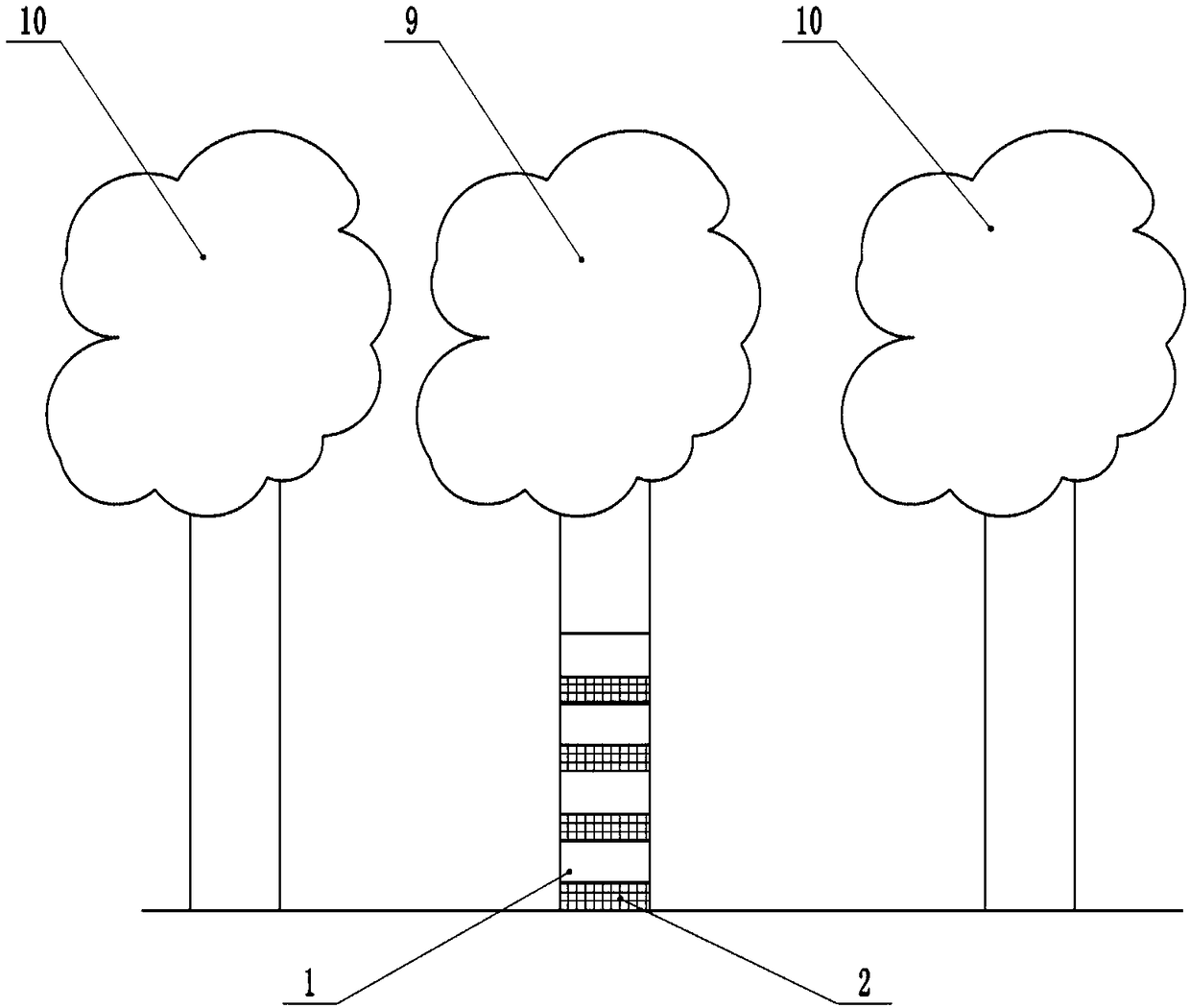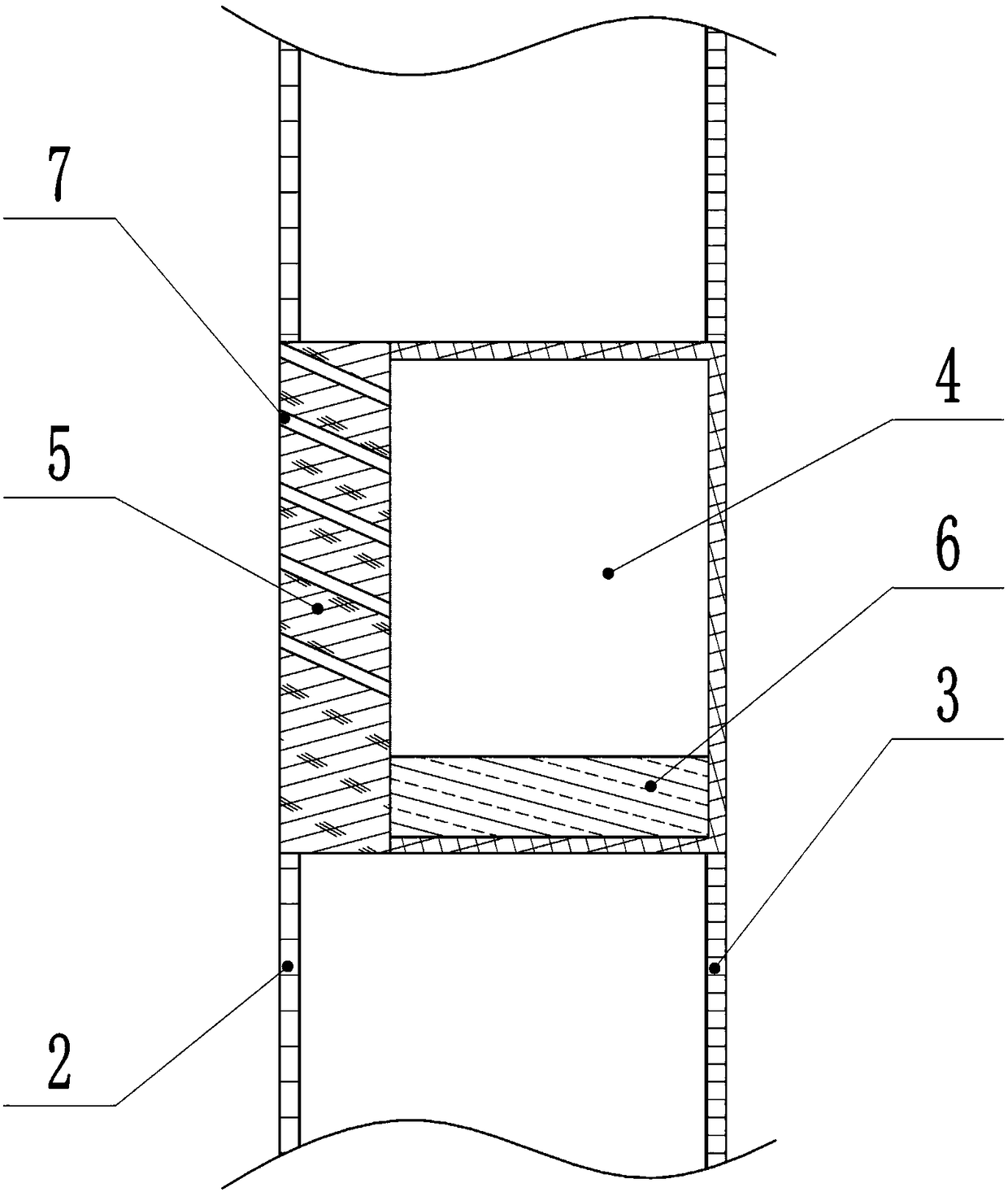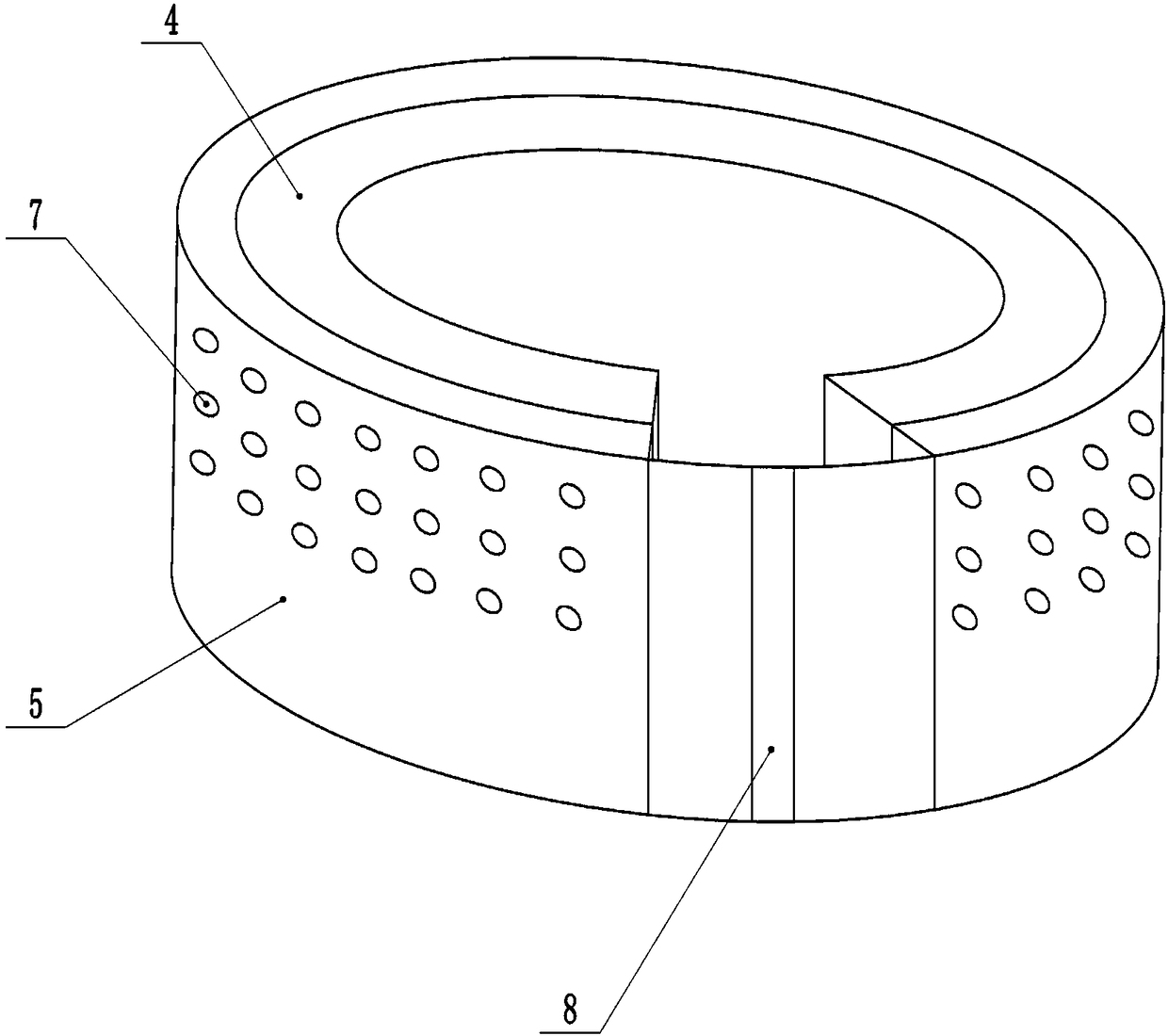Method for preventing and controlling forestry pests
A pest and forestry technology, applied in pest control, botany equipment and methods, devices for catching or killing insects, etc., can solve the problems of high labor intensity, complicated operation, environmental safety risks, etc., and achieve the convenience of manual application Effect
- Summary
- Abstract
- Description
- Claims
- Application Information
AI Technical Summary
Problems solved by technology
Method used
Image
Examples
Embodiment 1
[0029] combine figure 1 and figure 2 As shown, the lure trees and forest trees are arranged at intervals, and traps are installed on the lure trees. The trapping device comprises a trapping box 1, a connecting gauze 2 connected to the front wall of the trapping box 1 and a connecting belt 3 connected to the rear wall of the trapping box 1; the trapping box 1 comprises a medicine box 4, and the front wall of the medicine box 4 is made of Surface layer 5; insecticide 6 is arranged in the medicine box 4, and several trapping holes 7 are arranged on the wooden surface layer 5. The medicine box 4 is a flexible ring, and its two ends are provided with connecting sticks 8 . The trapping device is fixed on the lure tree by connecting sticky buttons, and the position is from the ground to 1-1.5 meters. The connecting belt is a metal belt or a nylon belt, which is used to protect the lured tree from being damaged by borer pests.
Embodiment 2
[0031] A method for controlling forestry pests, comprising the steps of:
[0032] (a) Attracting materials are mixed among forest trees, and the ratio of forest trees to attracting materials is 10:1-2;
[0033] (b) From mid-October to mid-November, between 6:00 am and 7:00 am, spray repellant to the trunk of the forest, subject to spraying the branches wet; repeat every other week;
[0034] (c) From March to April of the following year, between 6:00 am and 7:00 am, spray the repellant on the trunk of the forest, subject to spraying the branches wet; repeat every other week.
[0035] Wherein, the attracting material includes attracting trees and trapping devices installed on the surface of attracting trees. The trapping device is as described in Example 1. The lure trees include arborvitae, maple, ash or elm.
[0036] Wherein, the repellant includes camphor and alcohol solution, the mass volume ratio of camphor to alcohol solution is 3g:1L, and the volume concentration of th...
Embodiment 3
[0039] With embodiment 2, difference is:
[0040] The repellant includes camphor and alcohol solution, the mass volume ratio of camphor to alcohol solution is 1g:1L, and the volume concentration of the alcohol solution is 75%.
[0041] The insecticide comprises the following components in parts by weight: 10 parts of 1% phaelopedin water emulsion, 5 parts of 70% thiophanate-methyl wettable powder, 3 parts of 5% imidacloprid, 5 parts of 30% acephate parts and 100 parts of water.
PUM
 Login to View More
Login to View More Abstract
Description
Claims
Application Information
 Login to View More
Login to View More - R&D
- Intellectual Property
- Life Sciences
- Materials
- Tech Scout
- Unparalleled Data Quality
- Higher Quality Content
- 60% Fewer Hallucinations
Browse by: Latest US Patents, China's latest patents, Technical Efficacy Thesaurus, Application Domain, Technology Topic, Popular Technical Reports.
© 2025 PatSnap. All rights reserved.Legal|Privacy policy|Modern Slavery Act Transparency Statement|Sitemap|About US| Contact US: help@patsnap.com



